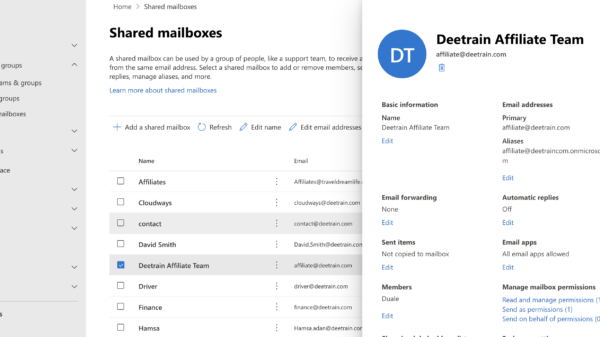With the everchanging landscape of technologies and individuals wanting to develop their skills day by day are always asking themselves which career path should take in technology?
The question always comes to mind for many people whether they would be good for the role.
As a general rule, Cybersecurity is hard but it is most definitely doable. Understanding some of the job responsibilities and the characteristics of the person doing this job is crucial for your success in this industry.
If you have specific characteristics and are keen to work hard and develop yourself within the field of cybersecurity then this might be the career for you. I’ll outline everything you need to know and hopefully answer some common questions you may have throughout this post.
Is Cyber Security Hard To Learn?
Cybersecurity attacks cost businesses millions in loss of revenue which demonstrates the importance of having a dedicated cybersecurity team. It is vital and imperative that companies comprehend the risks and also how they are able to protect their systems from external threats.
As with any field, there are always challenges and learning curves that you have to go through to master your trade/skills. Sometimes people succeed and others just don’t. But keeping that drive and the motivation to keep going then that’s what’s going to keep you separate from the rest.
Cybersecurity is one of the niches within IT that offers a plethora of opportunities for those who have the skills needed to perform the tasks. People who tend to believe that cybersecurity is difficult to learn are mistaken and it is usually a misconception.
However, it is also important to note that doing some googling will not provide the level of knowledge you need to become successful in this field. You would need to take a pragmatic and structured learning path to ensure maximum productivity and success.
Courses
Courses are always the best option when you want to learn more about a specific subject. If you want to pursue a career in cybersecurity then the most important thing you should do is sign up for a verified online learning training institution that will help you get there much faster
1. CBT Nuggets
2. Plural Sight
3. IT Pro TV
4. Udemy
5. University
All of these companies have helped me personally to develop a successful career in technology by ensuring that I have a combination of theory and lab environment to gain the skills needed in the workforce.
Certifications
As part of taking an online course, it is also common that they are connected with a certification. The more certifications that you have, the better chance you have with an employer. This means that the certifications you have now acquired demonstrates and validates the skills learned on the program and subsequently provide value to the employer.
Labs
Technology is always about having an understanding of the technology that you’re supporting as well as having the hands-on experience to get the work completed.
University
Attending short courses that some university offers is a really good way of acquiring a high level of knowledge. The benefit of this is that you will be directly get taught by industry professionals and acquire a certificate after completion. You can find more information with a short fundamental course on cybersecurity here.
Is CyberSecurity a hard job?
Just like any other career, you will always find a pain point or sometimes the job being very difficult at certain parts. The main thing to consider is whether you actually enjoy what you’re doing and adding value to the organization.
According to many CyberSecurity within the industry, the job itself is not hard but there is a lot of learning and studying that requires for you to be successful at the job. This means understanding how other departments within IT function, so you’re better equipped to protect their systems.
However, there are always other types of caveats within organizations and different requirements and aspects. Let’s look at how we can maximize our success and make the job easier for us.
Understanding of networks:
The core of cybersecurity is to understand how the network works. Think about it. Everything within a corporation is to protect its digital networks.
Read books:
One of the most important ways of upskilling and making your life much easier within a CyberSecurity role is to gain information rapidly. The best thing you could do for yourself is to read books and deeper your understanding.
Get yourself a subscription on O’Reilly that has many books on CyberSecuirty by leading professionals and is regularly updated.
Follow Blogs and News:
As with all technologies always changing and updating, the best way of keeping up to date is by following the blogs that regularly keep their information up to date so you don’t miss anything. To make sure that your knowledge is not outdated, you can subscribe to most blogs and follow social media accounts that regularly post on these topics.
It is also important to note that Soft and Hard skills are noticed and a form of a pre-requisite for most companies. See below:
Hard Skills Required:
- Explaination of technical topics in a simple language
- Computer Science fundamentals
- Expert in a particular subset of CyberSecurity
- Know at least one programming language
- Familiar with best practices and attack tools
- Information management and critical risk decision making
Soft Skills Requirement:
- Attentive listening
- Clear verbal and written skills
- Creative and technical problem solving
- Able to adapt and work as a part of a team
- Calm when things go very wrong
- Curisotiy to keep learning and developing oneself
As you can see the soft and hard skills are very important within any organization. As it stands, the common consensus is that technical skills can always be learned and there is a higher preference for individuals who acquire Soft skills because these are a part of someone’s personality.
“Soft skills get little respect but they will make or break your career”
Peggy Klaus, author
Does cyber security require coding?
They say that a good engineer always has some form of scripting or coding language under their belt. There are s
Generally, junior CyberSecurity jobs do not require to have coding language skills. On the other hand, being able to write and understand coding to a certain extent can be advantageous and becomes more of a requirement for mid-senior levels.
Even though it is desirable that you may have coding skills, it is something that you should not worry about when building up your experience. It is widely known that the higher you become in the field it would be necessary to advance your career.
With the same token, there are many CyberSecurity experts that are not very strong with programming language.
Ways to learn coding?
If you decide that actually want to learn coding to better market yourself within this field, then there could be a couple of ways that you can do this.
1. Python – Python has been on the increase within the CyberSecurity space. It is known because of the clear structure and simple syntax that it provides. Any task you want to do, you can always complete it with Python (Also known as the cousin of Powershell.
2. JavaScript – JavaScript is a core technology that powers the internet. Its purpose and benefit are that it increases the interactivity of web pages. Due to its extensive usage, you can learn this language so you are always ahead of the hackers.
3. PHP – is a server-side language for developing websites. The advantage of PHP enables you to fight off intruders. JavaScript coupled with PHP can help you build solid solutions to secure web pages.
4. SQL – Structured Query Language is used for managing data stores in databases. Hackers are now orchestrating the language to damage the stored data. Having a good understanding of SQL language is imperative in CyberSecurity.
What qualifications do you need for cyber security?
It is very important to get the foundations right when embarking into the world of CyberSecurity. Qualifications needed are split into three parts which are foundational, Intermediate, and advanced. I will outline below all three sections.
| Provider | Foundation | Intermediate | Advanced |
|---|---|---|---|
| CompTIA | Security+ | CySA + PenTest + | CASP+ |
| ISC | SSCP | CCSP CAP CSSLP | CISSP |
| ISACA | CSX Fundamentals | CISA | CISM |
I have now outlined the three sections that you need to acquire these certifications and be able to validate your skillsets.
However, you may be thinking that you may need an online course for these certifications with hands-on labs. Not to worry, below are the best courses I can recommend to get started and start your Cybersecurity journey today!
How much do cyber security experts earn?
You may be having a burning question to ask about salaries. It is important to know how much the average salary that these individuals get so you can assess whether this is a lucrative career for yourself.
- The starting salries for cyber securiry analytics is around $41,000 – $55,000.
- Middle and senior analystics can expect anywhere between 55,000 – $80,000.
- Leadership or managerial roles can be anywhere from $96,000.
You can clearly see that this career can be lucrative the more experience you get and also the more learning and courses that you enroll in. The main aspect of these roles is to always keep up to date, learn new technologies and keep advancing yourself.









